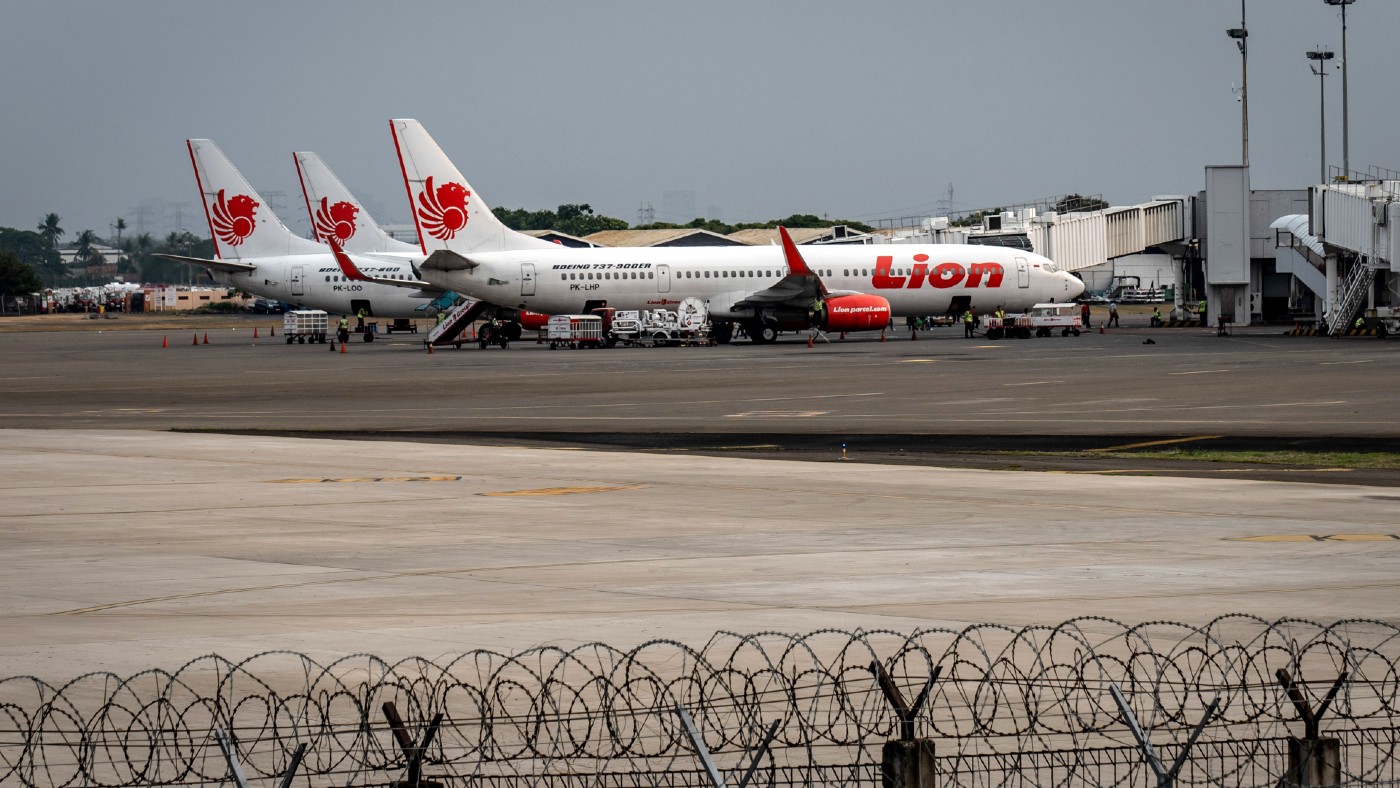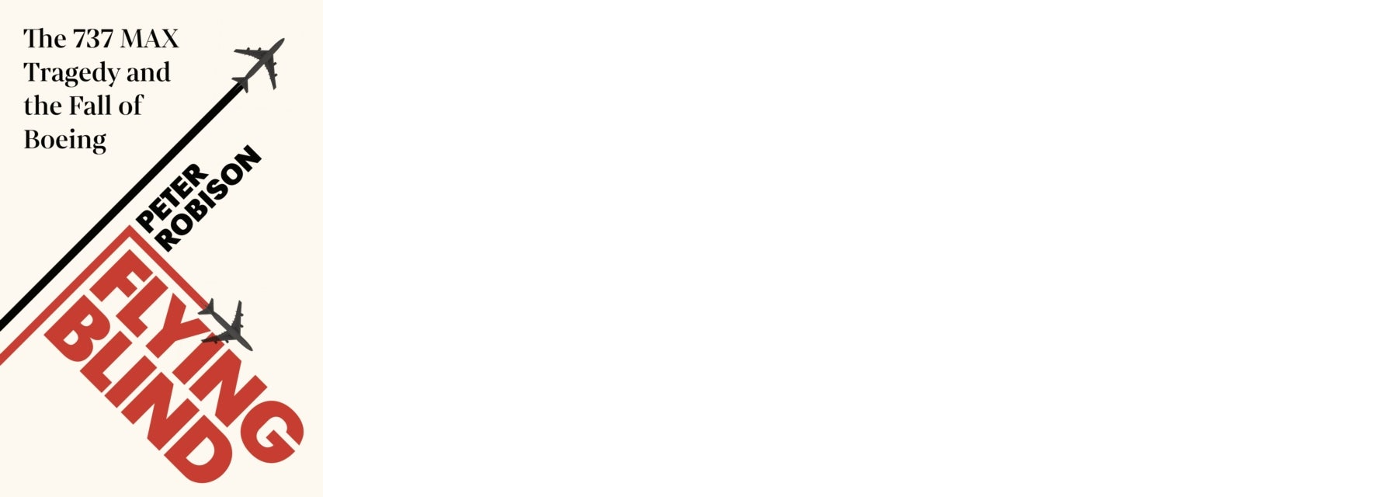Book of the week: Flying Blind by Peter Robison
The Bloomberg journalist investigates the tragic failure of Boeing’s 737 Max plane

A free daily email with the biggest news stories of the day – and the best features from TheWeek.com
You are now subscribed
Your newsletter sign-up was successful
In October 2018, a Lion Air flight in Indonesia plummeted into the Java Sea, killing all 189 people on board. Five months later, an Ethiopian Airlines flight ploughed into the ground outside Addis Ababa, killing 157.
There were striking similarities between the two crashes, said Roger Lowenstein in The Wall Street Journal. In both cases, the plane’s nose suddenly started dipping, causing the pilot to lose control. And each involved Boeing’s new 737 Max, the company’s “upgrade to its venerable 737”.
In Flying Blind: The 737 Max Tragedy and the Fall of Boeing, the Bloomberg journalist Peter Robison explains how Boeing brought an unsafe plane to market. The story he tells – of a company once renowned for its engineering excellence becoming in thrall to cost-cutting and short-term profits – is at once riveting and “disturbing”.
The Week
Escape your echo chamber. Get the facts behind the news, plus analysis from multiple perspectives.

Sign up for The Week's Free Newsletters
From our morning news briefing to a weekly Good News Newsletter, get the best of The Week delivered directly to your inbox.
From our morning news briefing to a weekly Good News Newsletter, get the best of The Week delivered directly to your inbox.
The origins of the two crashes lay in Boeing’s “bitter battle” with Airbus for dominance of the short-haul market, said Michael Skapinker in the FT. For decades, the 737 had “kept the world aloft”, but by the 2010s the European manufacturer’s A320 was “seen by many airlines as superior”.
Since developing a complete replacement for the 737 would have cost an estimated $20bn, Boeing opted instead to retrofit its existing 737s with “bigger, more fuel-efficient engines” – a process that cost $2.5bn. But because the old plane’s wings were so low-slung, the engines had to be mounted in a forward position – which meant the plane had a tendency to tilt upwards in flight. To prevent this, Boeing installed a sensor-activated software system called MCAS, which would automatically “force the aircraft’s nose down”.
That might have been fine had pilots known how to respond when MCAS kicked in, said John Arlidge in The Sunday Times. But fearing that “expensive and disruptive” simulator training would put off airlines buying the 737 Max, Boeing persuaded regulators that “MCAS was not important enough to require new simulator training”. In the plane’s manual, the software was barely mentioned. The Lion Air pilots had no idea why the nose kept dipping.
Robison exposes the arrogance of Boeing’s top brass, who failed to act even when their employees raised doubts about the Max’s safety, said David Gelles in The New York Times. And he castigates the Federal Aviation Administration for effectively doing the manufacturer’s bidding. This is an “authoritative, gripping and finely detailed narrative that charts the decline of one of the great American companies”.
A free daily email with the biggest news stories of the day – and the best features from TheWeek.com
Penguin Business 336pp £20; The Week Bookshop £15.99

The Week Bookshop
To order this title or any other book in print, visit theweekbookshop.co.uk, or speak to a bookseller on 020-3176 3835. Opening times: Monday to Saturday 9am-5.30pm and Sunday 10am-4pm.
-
 What to know before filing your own taxes for the first time
What to know before filing your own taxes for the first timethe explainer Tackle this financial milestone with confidence
-
 The biggest box office flops of the 21st century
The biggest box office flops of the 21st centuryin depth Unnecessary remakes and turgid, expensive CGI-fests highlight this list of these most notorious box-office losers
-
 The 10 most infamous abductions in modern history
The 10 most infamous abductions in modern historyin depth The taking of Savannah Guthrie’s mother, Nancy, is the latest in a long string of high-profile kidnappings
-
 A thrilling foodie city in northern Japan
A thrilling foodie city in northern JapanThe Week Recommends The food scene here is ‘unspoilt’ and ‘fun’
-
 Tourangelle-style pork with prunes recipe
Tourangelle-style pork with prunes recipeThe Week Recommends This traditional, rustic dish is a French classic
-
 Samurai: a ‘blockbuster’ display of Japan’s legendary warriors
Samurai: a ‘blockbuster’ display of Japan’s legendary warriorsThe Week Recommends British Museum show offers a ‘scintillating journey’ through ‘a world of gore, power and artistic beauty’
-
 BMW iX3: a ‘revolution’ for the German car brand
BMW iX3: a ‘revolution’ for the German car brandThe Week Recommends The electric SUV promises a ‘great balance between ride comfort and driving fun’
-
 Arcadia: Tom Stoppard’s ‘masterpiece’ makes a ‘triumphant’ return
Arcadia: Tom Stoppard’s ‘masterpiece’ makes a ‘triumphant’ returnThe Week Recommends Carrie Cracknell’s revival at the Old Vic ‘grips like a thriller’
-
 My Father’s Shadow: a ‘magically nimble’ love letter to Lagos
My Father’s Shadow: a ‘magically nimble’ love letter to LagosThe Week Recommends Akinola Davies Jr’s touching and ‘tender’ tale of two brothers in 1990s Nigeria
-
 Send Help: Sam Raimi’s ‘compelling’ plane-crash survival thriller
Send Help: Sam Raimi’s ‘compelling’ plane-crash survival thrillerThe Week Recommends Rachel McAdams stars as an office worker who gets stranded on a desert island with her boss
-
 Book reviews: ‘Hated by All the Right People: Tucker Carlson and the Unraveling of the Conservative Mind’ and ‘Football’
Book reviews: ‘Hated by All the Right People: Tucker Carlson and the Unraveling of the Conservative Mind’ and ‘Football’Feature A right-wing pundit’s transformations and a closer look at one of America’s favorite sports